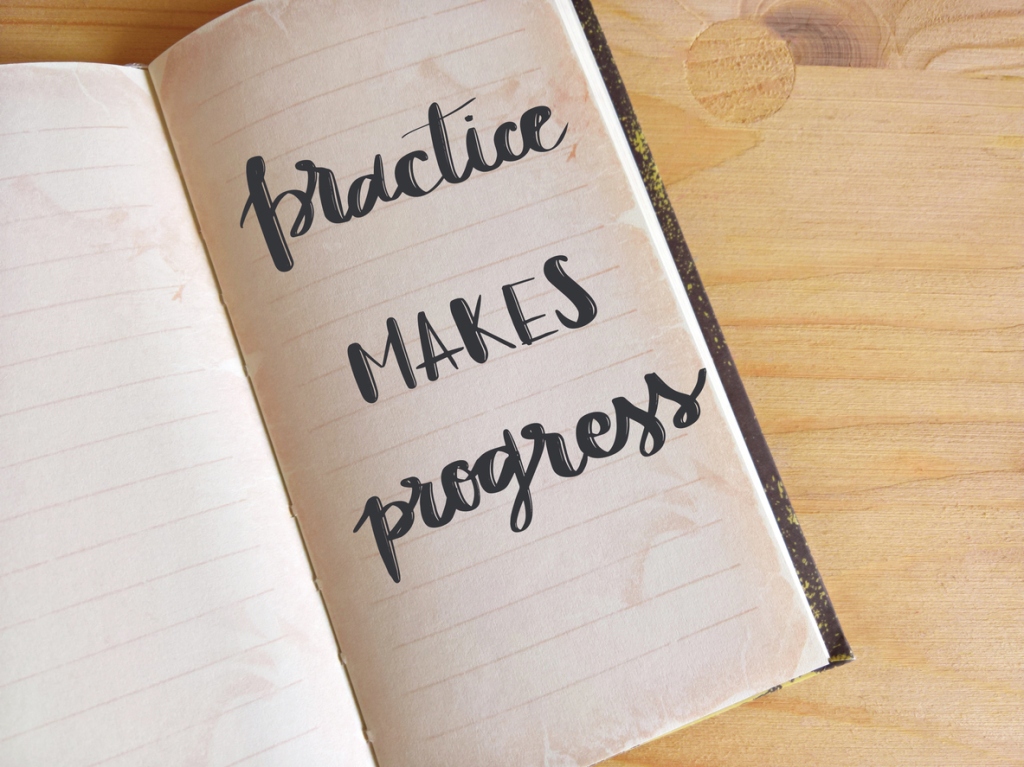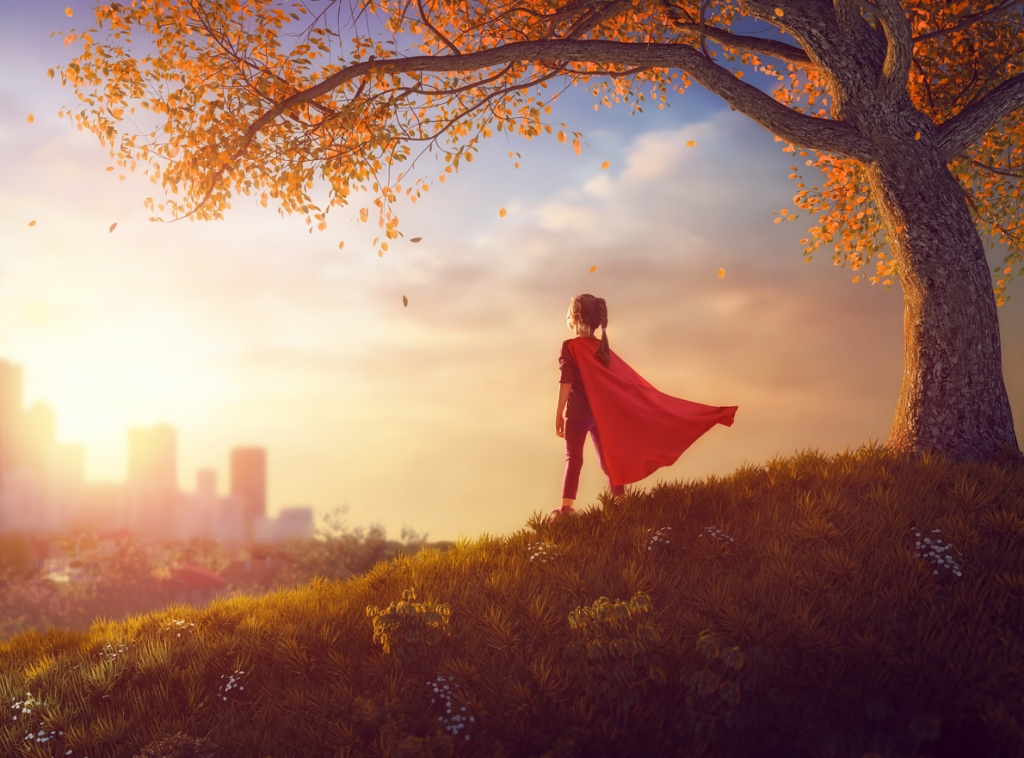I’ve come across several people in my life who have stopped themselves from finishing a project, or even getting started in the first place, because they believed in some perfectionist ideal on how the process should be—instead of simply letting the process be what it is.
The process of creativity is often a long, messy, and emotionally enduring endeavour. It is almost never a straightforward process, rather a bumpy road with lots of twists and turns. Although the inherent challenges that come with creativity can make you anxious about the road ahead, it is actually within this struggle where our greatest work resides.
Resistance is a natural part of the process, and often times, the more resistance you have toward something, the more important it actually is. Resistance is your ego’s way of trying to preserve itself by bringing your self-esteem down, and it is your duty as a creator to squash your ego in its wake and get to work anyway.
As a life long procrastinator, I am no stranger to this process, and am still a victim to it when I’m not mentally prepared enough for it, but nonetheless I hope you find what I share today to be helpful in your own journey.
So without further adieu, here are the 3 Ways Perfectionism is the Ultimate Procrastination:
- Not feeling competent enough.
- Not feeling original enough.
- Not feeling motivated enough.
Practice Makes Progress
If you don’t feel confident to get started on a project, it might mean that you’re lacking a few fundamental skills of the trade to even put a dent into that said project. But do not fret because there is a lot of joy and meaning to be found in learning and practicing new skills. As you learn new things, you will naturally feel excited to employ these new skills and techniques to whatever you’re working on.
I know in my experience, whenever I’ve learned a new guitar or piano chord, a writing concept, or a new music production technique, I’ve always felt the need to experiment with that new skill in my latest project in any given field. It didn’t matter whether I employed the new skill in small doses, in excess, or scrapped it from the final project entirely. What mattered was that I gave myself the freedom to experiment with something new and broaden my skillset.
A lot of people feel like they’re not good enough to start on anything because of this lack of self confidence. And since we often equate competence with confidence, that lack of competence holds us back. I’ve heard the same excuse a thousand times by now:
“I can’t write a song/write a book/make a painting, I’m not creative enough.”
It’s like saying, “I can’t do yoga, I’m not flexible enough.”
Well, here’s the kicker: you become flexible by doing yoga. Likewise with anything creative, you stretch out your creativity at a certain artform the more you engage it. Who cares if you don’t know how song or plot structures work or how to mix colours properly?
You learn by experimenting and actively choosing things to learn either through a class on or offline, a teacher or mentor, and/or by observing the works of art that inspire you and comparing your work to theirs in a reasonable and non-self-esteem-crushing kind of way. The only important thing to note is that you don’t keep yourself stuck in training mode because you’re too afraid to actually create something. Study your techniques all you want, but actually put them to use at some point or that can become another side of this same coin of lacking competence.
Nothing and Everything is Original
I’ve said it once and I’ll say it again; do not be overly concerned with being original. It’s a huge waste of time and energy, and a surefire way of crushing your own morale. This is another thing a lot of potential creators often contend with. They want to be above the crowd by way of originality because they have it in their heads that they must be this wonderfully unique snowflake, or there is no point of creating anything because they’ll just be making more of the same to put into the stratosphere.
Stop this kind of thinking NOW!
Think about this instead:
There are only 7 plots in fiction.
There are only 7 notes in a scale.
There are only 7 colours in a rainbow.
Nothing you create will ever be entirely original because you’re already using established artforms such as fiction, music, or art. Just because there are only seven plots in fiction, doesn’t mean you can’t write the story your way. Just because there are only seven notes in a scale, doesn’t mean you can’t rearrange those notes your way. Just because there are only 7 colours in a rainbow, doesn’t mean you can’t mix and match those colours your way.
Most of us want to think outside of the box, but we need to know what’s in that box in order to know what we’re straying away from in the first place, and to do so with moderation that serves our work. Otherwise it can come across as, or actually become, trying too hard to stand out instead of genuinely trying to expressing ourselves.
Maybe your novel can have a mix of more than just one of those 7 plots in fiction. Maybe your song can include a chromatic note or two that isn’t in the 7 notes of its original scale. Maybe your painting can blend those 7 colours in a varying degrees to achieve different hues of colours you didn’t think possible. But the most important thing is to use these lucky 7 things to your advantage, rather than something you actively work against.
Originality, then, isn’t about coming up with something entirely new, rather taking pre-existing matter and mixing and matching different elements into something new by design of how you’ve personally conveyed it. If your goal is to be original, you risk trying too hard to be eccentric and esoteric to the point of drawing too much attention to how weird and different your artwork is instead of actually having something useful to say with it.
“Originality comes from genuine self expression, not concerted effort.” – Marlon from Your Write to Live
Motivation is Random, Discipline is Free Will Power
As someone with ADHD, I have often fallen under the seductive spell of hyper-focus whenever I’ve come up with a new idea or discovered a new hobby. I go at it full force, basking in its novelty with absolute certainty that I will do this forever, until I stop dead in my tracks because I’ve burnt myself out from going too hard at something instead of pacing myself accordingly.
Then I spend weeks, sometimes months, wondering if I’ll ever have the motivation to start writing another song or editing a new video, writing a novel etc.
A lot of people say that they will only create something when they feel motivated and will not force themselves to do it otherwise, and for people who have created some great volumes of work that have only come from allowing their muse to motivate them by her own accord, that’s all well and good.
But for those who haven’t even completed or started a project, this kind of thinking is detrimental to creativity and can often be an excuse for never creating to begin with.
It pains me to talk with people who contend with all of these ways in which procrastination manifests as perfectionism, but when it comes to motivation I probably relate to it the most because it’s the one and only demon on this list that I’ve yet to conquer. But basically you really don’t want to be waiting around for those times you feel motivated enough to create because you’ll either be waiting for a long time—which will then result in small bursts of creativity for a short amount of time before you spend another several weeks, months, maybe even years wondering if it’ll ever happen again—or you’ll be waiting forever.
The decision to create needs to come from you and you alone.
You cannot rely on random happenstance to get you there. If you start feeling bad for not having worked on your creativity for a long time, that anxiety around it is actually unspent energy that could easily be going into your project as opposed to crushing your own self-esteem with the self imposed guilt trip. What you want to do is create healthy habits that prime you to start working, even on your most resistant days, all to the point of turning your routine into a ritual.
You want to get to the point where you can’t not create something on most, if not all days. It’s something you need to get done or the day does not feel complete otherwise. Even if you don’t turn out your best work for several days straight, at least you’ve gotten the crappy ideas out of the way so that when you get back into the swing of things, you’re at least glad that you’ve committed to your practice. That is how you know you’ve turned a habit into a ritual.
While there is the danger of turning your ritual into a superstition where you think, “I gotta have my large coffee and cookie every morning or I can’t create anything!” Having some kind of routine in place to at least increase your chances of getting something is better than having low to no chance in hell that you create anything at all.
We’ll get into overwork and burnout in a future post, but for now, let’s simmer in the idea that maybe we aren’t working enough to ensure we get our creative needs met. And I don’t know about you, but I get pretty depressed if I’m not creating at least one or two things on nearly daily basis, and I’m starting to realize just how much of that depression is a lot of emotionality that is being left unexpressed that can be transmuted into writing fiction, producing music, or even the simple act of journaling.
It’s actually through journaling before almost every writing session where I tackle my demons and empty out my mind to make space for creative ideas. I need to check in with myself and see how I’m feeling about my life and the work laid out ahead of me, otherwise these unchecked doubts will creep up in any given writing session. Only then I’ll feel like I’m strong and smart enough to get on with the project.
Feeling and Being Enough
That’s what this entire post comes down to in a nutshell: feeling enough.
Creative people are notorious for not feeling or being enough and that’s why a lot of us over or under perform where we can be finding a happy and healthy medium between the two. Just notice that whenever you encounter any self doubt, imposter syndrome, or resistance, it’s all pent up energy that is being left unexpressed, and you need an outlet for it.
Personally for me, creating a slew of work doesn’t mean I will guarantee a sense of meaning and contentedness in my life, but it sure as hell increases the probability for them, provided that I am coming at it from a place of stillness. A place where I’m not using my creativity to avoid uncomfortable thoughts and feelings about my life, rather taking them head on with confidence that I will get through it all no matter how difficult it all is.
It’s a tough balancing act.
You want to create because you have something in you to express, and you have to fight your ego every step of the way as to not do it for the wrong reasons like fame, fortune, or fear. Like the fear of not feeling or being enough. Feeling and being enough starts with you right here, right now in making the decision to take your creativity into your own hands, not the whims of fate. And definitely in not submitting to the whims of our egos that hold us back in making us believe we are not good or original enough. That’s not what’s important.
What’s important is giving ourselves the permission to express ourselves as that is Your Write to Live.






Great post. What I’ve learned works for me is putting in the work, like your first point there. Nothing replaces that, and there’s a certain confidence that comes with having waded through the muck. I enjoyed this read. Thanks for sharing!
Yes! That ability to overcome the resistance does provide a certain confidence like no other. I often ask myself at the end of a writing session, “that wasn’t so hard, was it?” Actually sometimes it is, but here I am anyway, right? Thanks for reading, liking and commenting, Stuart!
[…] done is a feeling of incompetence and the lack of confidence which I’ve touched upon in 3 Ways Perfection is the Ultimate Procrastination, and the only way to gain any sense of competence is […]
[…] here on Your Write to Live. The resistance that our ego feeds us by filling our heads with doubt, perfectionism, and maybe some full on self loathing, which will all prevent us from sitting down and doing the […]